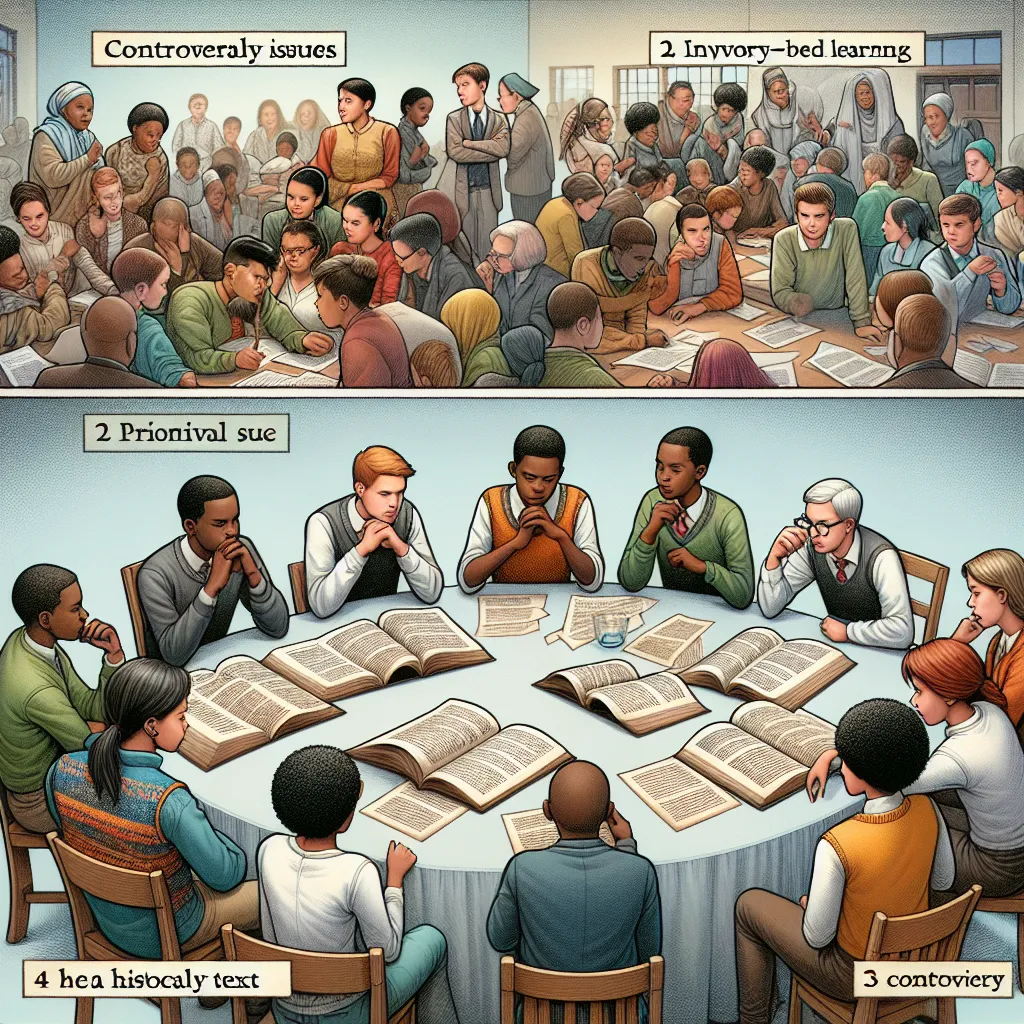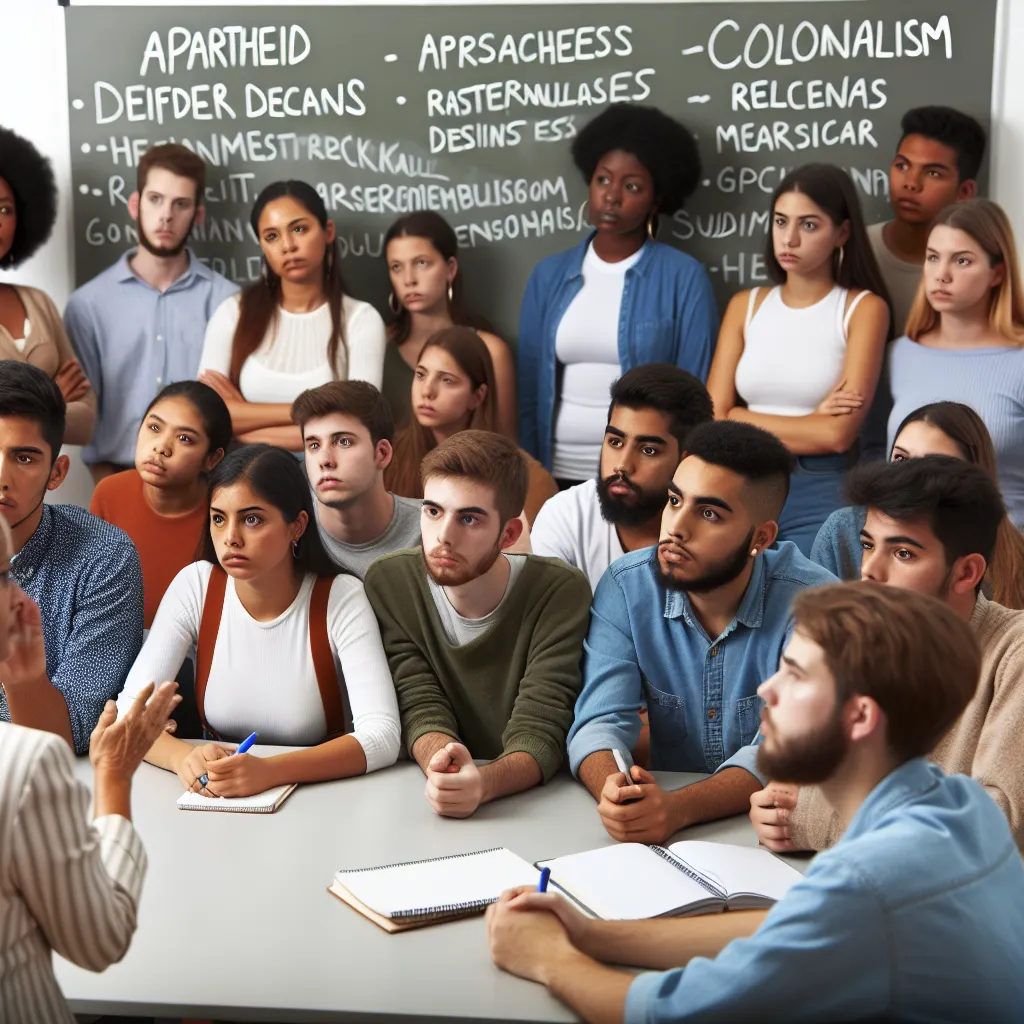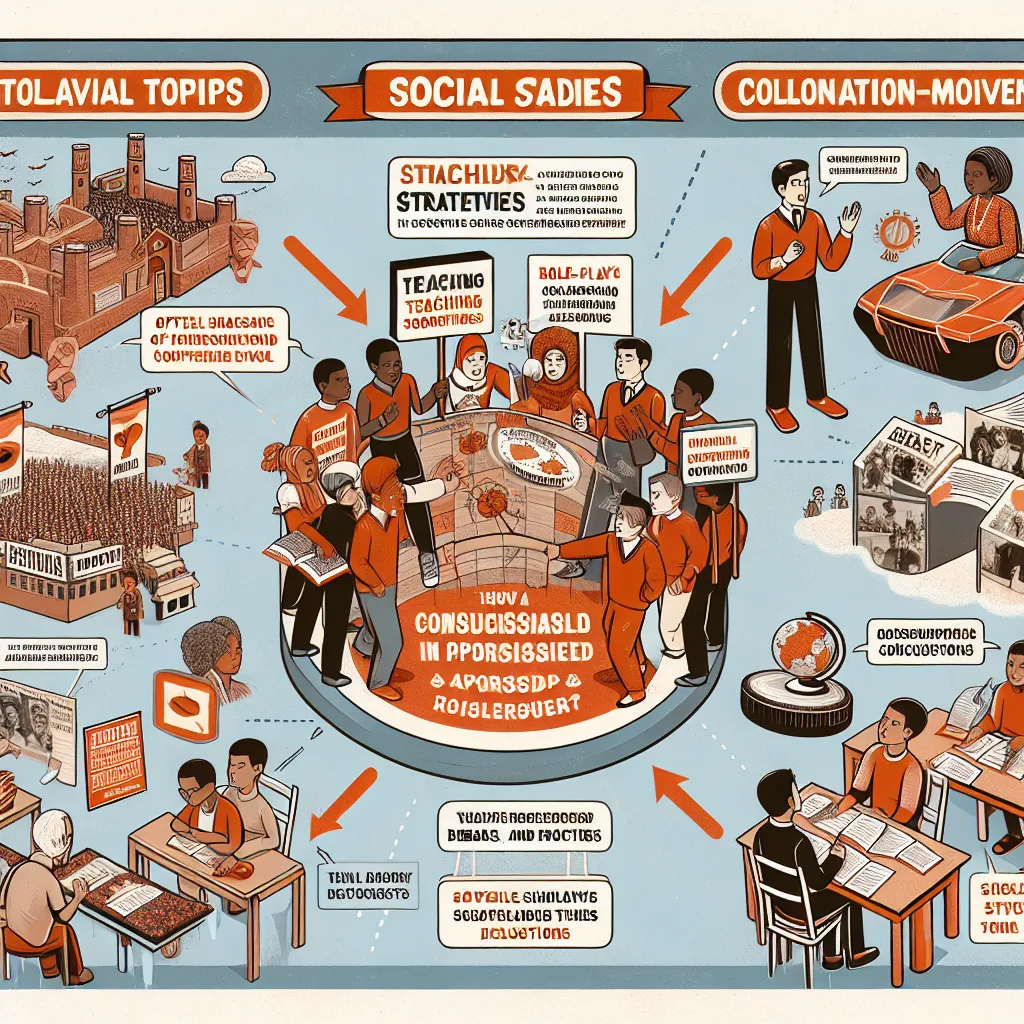Ask AI on The Internet
Question: critically discuss Teaching Controversial Issues in SS History: Approaches, Challenges, and Educational Outcome. (Include examples of controversial topics from CAPS) With references and citations
Teaching controversial issues in Social Studies (SS) History is a critical component of fostering critical thinking, empathy, and informed citizenship in students. However, this approach is fraught with challenges and requires thoughtful strategies to achieve educational outcomes that benefit both students and society at large. ### Approaches to Teaching Controversial Issues 1. **Inquiry-Based Learning:** - **Reference:** Zwiers, Jeff (2007). "Building Academic Language". - **Description:** This involves encouraging students to ask questions, explore multiple perspectives, and engage in research-based discussion. The focus is on critical thinking and the development of analytical skills. - **Example:** Debating the causes and consequences of apartheid in South Africa where students investigate various primary and secondary sources. 2. **Socratic Seminars:** - **Reference:** Parker, Walter C. (2006). "Public Discourses in Education". - **Description:** A form of dialogue where students engage with each other through questions and answers, facilitated by a teacher. It promotes deep understanding and respectful discourse on contentious topics. - **Example:** Hosting a discussion on the land restitution issues post-1994 in South Africa. 3. **Role-Playing and Simulations:** - **Reference:** Nussbaum, Martha (2010). "Not for Profit: Why Democracy Needs the Humanities". - **Description:** Students take on roles and simulate historical debates or events, allowing them to understand different viewpoints and the complexity of historical contexts. - **Example:** Reenacting the negotiation process leading to South Africa’s transition from apartheid to democracy. ### Challenges in Teaching Controversial Issues 1. **Bias and Objectivity:** - **Description:** Teachers must navigate their biases and ensure they provide balanced perspectives. The challenge is to present material without indoctrinating students. - **Reference:** Hess, Diana E. (2009). "Controversy in the Classroom: The Democratic Power of Discussion". 2. **Community Sensitivities:** - **Description:** Parents and community members may have strong views on what should be taught, leading to potential conflicts. - **Reference:** Barton, Keith C., and Levstik, Linda S. (2004). "Teaching History for the Common Good". 3. **Student Emotional Reactions:** - **Description:** Controversial issues can evoke strong emotions, and teachers need to create a safe space for all students to express their thoughts. - **Reference:** Bell, Lee Anne (2007). "Teaching for Diversity and Social Justice". ### Educational Outcomes 1. **Enhanced Critical Thinking:** - **Description:** Students develop the ability to analyze and evaluate complex information, understand different perspectives, and make informed decisions. - **Reference:** Wineburg, Sam (2001). "Historical Thinking and Other Unnatural Acts". 2. **Improved Empathy and Moral Reasoning:** - **Description:** Engaging with diverse viewpoints helps students develop empathy and a more nuanced understanding of ethical issues. - **Reference:** Kohlberg, Lawrence (1984). "The Psychology of Moral Development". 3. **Active Citizenship:** - **Description:** Education on controversial issues prepares students to participate actively and responsibly in democratic processes. - **Reference:** Gutmann, Amy (1999). "Democratic Education". ### Examples of Controversial Topics from CAPS (Curriculum Assessment Policy Statements) 1. **Apartheid and Its Legacy:** - The discussion involves the causes, mechanisms, and impacts of apartheid, including ongoing racial inequalities. - **CAPS Reference:** History Grade 12, Topic 2 (Apartheid South Africa in the 1940s to 1960s). 2. **Colonialism and Decolonization:** - Examining the impact of colonialism on South Africa and the broader African continent, and the various movements towards independence. - **CAPS Reference:** History Grade 10, Topic 3 (Colonial Expansion). 3. **Economic Disparities and Land Redistribution:** - Investigating historical land dispossession and the contemporary challenges and policies surrounding land reform. - **CAPS Reference:** History Grade 11, Topic 5 (Emergent Modern South Africa in the 20th Century). --- ### Conclusion Teaching controversial issues in SS History is both challenging and essential. Effective approaches include inquiry-based learning, Socratic seminars, and role-playing, each bringing distinct benefits while addressing specific challenges. When well-executed, these methods can lead to significant educational outcomes, shaping students into thoughtful, empathetic, and engaged citizens. Careful navigation of biases, community sensitivities, and student emotions is crucial to creating a balanced and respectful learning environment.
Think your answer is better than the AI's? Post it below.
Other Most Relevant Posts:
Question Tags
If you want your question answered by an AI, click here.







Post your own comment: